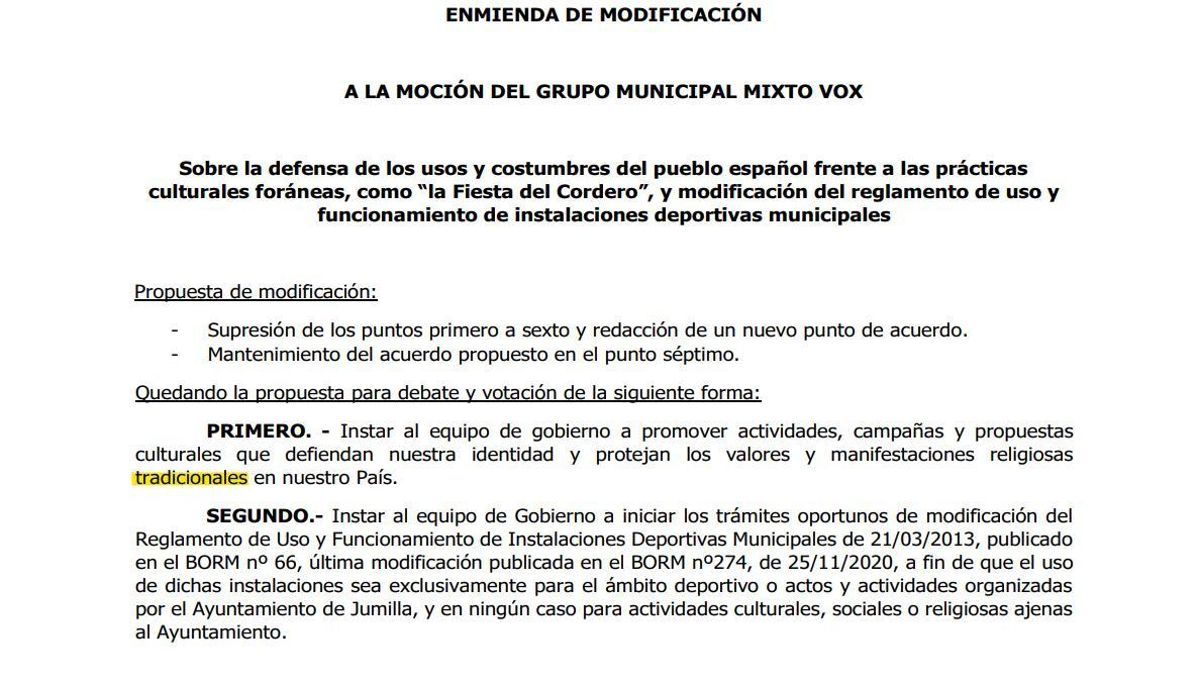Accusing manipulation is a very serious statement. What less not to manipulate affirming it. This is what has happened with a publication shared by the Popular Party of the Region of Murcia in its social networks, according to which the veto approved by the 'popular' and Vox in Jumilla to public Islamic acts is nothing less than a lie.
“Nor is anyone vetoed, nor is anything prohibited, the Muslim community is not even named,” they write in their X profile (formerly Twitter), attaching a screenshot of the alleged motion approved by the City Council led by the PP. A screen capture that is manipulated: the word “traditional” is missing.
In the final initiative, published on Thursday by Eldiario.es, the PP made amendments to the initial motion presented by the only Vox Councilor in the municipality, Juan Agustín Carrillo Navarro, which will allow the Muslim community to continue to continue celebrating events such as the end of Ramadan or the 'Lamb party' in the sports facilities of the town.
The finally approved text is the result of an amendment presented by the party of Alberto Núñez Feijóo to an initial text of the extreme right -wing formation containing an alleged defense of the “traditions” of the Spanish people. In the amendment of the PP, signed by the councilor María del Carmen Cruz Vicente on July 24, it is appreciated how the term that the party hides in its X profile is maintained in the final text.

The maneuver consisted of suppressing express references to any religious community, but allowing the modification of the sports facilities regulation so that its use “is exclusively for the sports field or acts and activities organized by the City of Jumilla, and in no case for cultural, social or religious activities outside the City Council.” That allows the Islamic acts to be vetoed in those spaces without explaining it, but maintaining the spirit of Vox's proposal.
According to Jurists consulted by Eldiario.esthe PP has sought a supposedly “neutral” writing that, on paper, does not prohibit that in these spaces a particular religious act cannot be celebrated, but all. However, these experts put the focus on how that reform can be applied and in the “context” in which it has been forged.
“The cult acts of all religions can be prohibited when they affect the common good. That is, you can ask that the public space is not occupied, that some bells do not make excessive noise or that a moving does not sing very high. But what cannot be done is a measure oriented and trimmed for a specific religion,” explains Joaquín Urías, professor of constitutional law at the University of Seville and ex -law of the Constitutional Court. The Muslim was the only confession that until now had requested for the use of these sports facilities for great festivities.
In addition, this expert affirms that allusion to “traditional religious values and manifestations” seems to be sent more to traditional events such as Holy Week than to eminently religious manifestations.